Did you know that engaging in outdoor activities can increase psychological well-being by up to 50%? Stepping into the wild isn’t just about getting fresh air—it’s a proven path to life-changing growth. Outdoor personal development harnesses nature’s power to ignite your potential, nurturing leadership skills, a resilient mindset, and a sense of achievement you just can’t get inside four walls. Ready to climb higher? Read on to unlock how nature turns everyday people into outdoor leaders and discover practical steps you can take today to spark your own transformation.

Unlocking Outdoor Personal Development: Surprising Statistics and Real-Life Impact
- Did you know that engaging in outdoor activities can boost your psychological well-being by up to 50%? Learn how outdoor personal development combines the power of nature and experiential learning to accelerate your journey toward personal growth, leadership skills, and resilience.
The secret power of outdoor personal development rests in its fusion of nature and hands-on, real-world challenges. Recent research shows that time outside doesn’t just leave you feeling refreshed—it sparks significant improvements in mental health , problem-solving abilities , and emotional regulation . In fact, outdoor activities are increasingly included in education programs to build not only technical life skills but also a resilient mindset that carries over into daily challenges.
More than theoretical, these benefits play out in vivid real-life stories. Outdoor leaders who step beyond their comfort zone on adventure trips report sustained personal growth long after returning. Initiatives like ropes courses, team retreats, and leadership camps are proven to spark confidence and fresh perspectives that simply can’t be duplicated inside a classroom. Whether it’s a rock climbing expedition or a mindful walk through the woods, every outdoor adventure becomes an important part of your development story.
Essential Elements of Outdoor Personal Development for Personal Growth
How Outdoor Education Shapes Personal Development and Growth

Outdoor education is more than just a change of scenery—it’s an immersive experience that accelerates personal growth . By blending structured lessons with real-world problem solving in an outdoor setting, participants learn to make decisions, work collaboratively, and develop a sense of personal responsibility. Unlike traditional classrooms, outdoor education programs challenge both the mind and body, encouraging young people to take calculated risks and stretch their capabilities.
What makes outdoor education an important part of personal development is its ability to foster a growth mindset. Participants face unexpected challenges, such as navigating trails or leading peers, that demand resourcefulness and adaptability. This hands-on approach nurtures leadership skills, builds resilience, and helps individuals gain confidence in their ability to overcome obstacles—key qualities that have a lasting impact beyond the trailhead or campfire.
For both students and adults, lessons learned outdoors are never isolated; they influence relationships, decision making, and every aspect of daily life. Outdoor education thus becomes a cornerstone for ongoing development, instilling skills that remain relevant through every stage of life.
Experiential Learning: Using Outdoor Activities for Lasting Change
Experiential learning is at the heart of all successful outdoor personal development efforts. Instead of passively absorbing information, participants immerse themselves in real challenges—like organizing a group camping trip or completing a ropes course. Experiential learning draws on the unique setting and unpredictability of the outdoors, forcing participants to think on their feet, solve problems creatively, and adapt to shifting environments.
This style of learning is incredibly effective because it involves active engagement and reflection. Individuals not only practice teamwork, communication, and leadership skills in live situations, but also receive immediate feedback from peers and instructors. These lessons stick: studies show that what’s learned during outdoor adventures translates directly into life skills such as perseverance, goal setting, and conflict resolution.
As a result, experiential learning through outdoor activities isn’t just about fun—it’s about transformation. You gain skills, build resilience, and foster a growth mindset that continues to drive personal and professional growth long after the experience is complete.
Expanding Your Comfort Zone with Outdoor Adventure
“The best view comes after the hardest climb.” – Outdoor Leadership Proverb
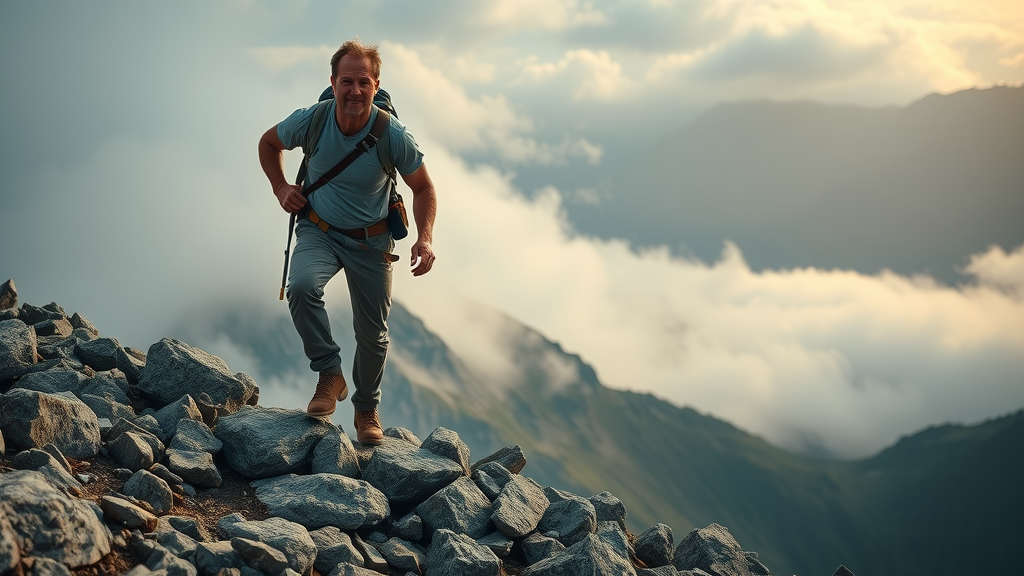
Every outdoor adventure offers a chance to push beyond your established comfort zone . Whether it's embarking on a long-distance hike, braving a fast-flowing river, or participating in a group survival workshop, these challenges test your limits and stretch your abilities. Stepping outside your comfort zone isn’t always easy, but it’s a crucial step toward meaningful personal growth.
Seasoned outdoor leaders understand that the magic happens when you embrace discomfort and uncertainty. Each challenge—physical or mental—helps build confidence, resilience, and grit. You learn to listen to your instincts, solve problems on the fly, and foster a sense of personal achievement that can’t be gained from routine or repetition. These experiences not only build new skills but also reinforce your belief in your own potential.
In time, your comfort zone itself expands. What once seemed daunting becomes routine, and you become more open to taking healthy risks elsewhere in life—whether that means pursuing a new career, tackling a big project, or building deeper relationships. Outdoor adventure is a launchpad, sparking transformation in every aspect of your life.
Outdoor Leadership: Cultivating a Resilient Mindset and Leadership Skills
Developing Outdoor Leaders: From Personal Growth to Leadership Excellence
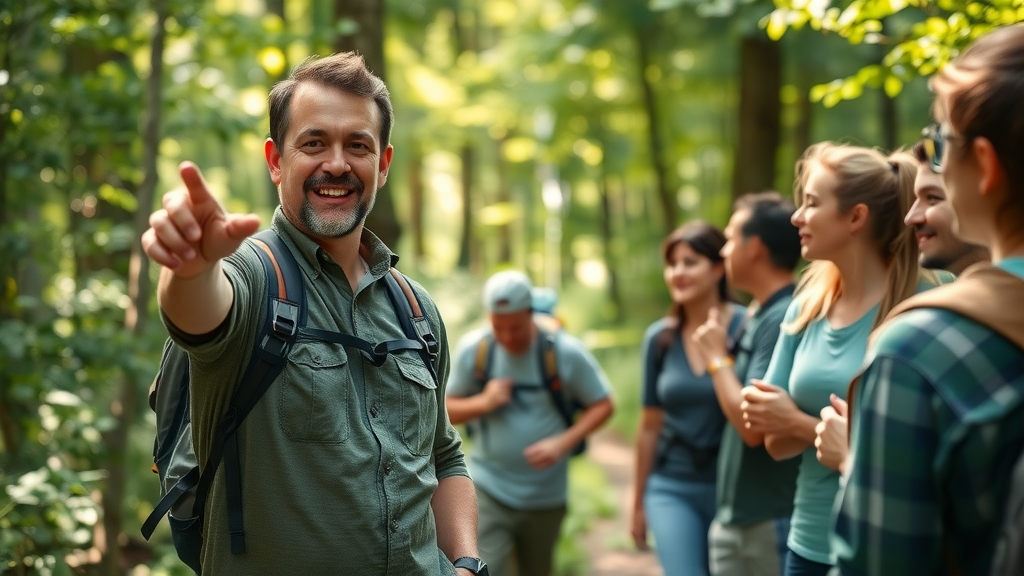
Becoming an outdoor leader starts with a foundation in personal growth, but the journey extends far beyond. Outdoor leaders must not only develop technical expertise and decision-making skills but also learn to inspire and motivate others, often in challenging or unpredictable conditions. Being an effective leader in the outdoors requires adaptability, empathy, and the ability to foster collaboration among all team members.
Personal growth and leadership skills are closely intertwined. As outdoor leaders take on more responsibility—whether guiding a hike, leading a team-building exercise, or managing safety—they cultivate a unique blend of confidence, humility, and trust. This strengthens their ability to set goals, solve problems, and support others through adversity, all of which are essential for long-term leadership excellence, both in outdoor adventures and everyday life.
Leadership experiences in the outdoors prepare individuals for success across a wide range of fields. Strong communication, quick thinking, and the proven ability to build confidence in others are invaluable traits that help outdoor leaders thrive in any environment.
Building a Resilient Mindset in Outdoor Personal Development
Developing a resilient mindset is central to the philosophy of outdoor personal development. In the unpredictable world of outdoor adventures—from sudden shifts in weather to unexpected obstacles—resilience is what keeps participants moving forward. Resilient individuals are able to recover from setbacks, adapt to changing circumstances, and maintain a positive outlook when things get tough.
Outdoor environments uniquely challenge people in ways that foster lasting resilience. Each time you persevere through a tough climb, confront your fears on a steep trail, or navigate through uncertainty with your group, you reinforce your mental toughness and emotional agility. Over time, these lessons become ingrained, giving you the courage and flexibility to tackle any challenge, in any setting.
Building resilience isn’t just about enduring discomfort—it’s about learning from every experience. The reflective process after each outdoor challenge helps translate these lessons into real-world scenarios, ensuring that your resilient mindset will carry forward in both personal growth and leadership situations far beyond the outdoors.
Critical Outdoor Leadership Skills for Lasting Personal Achievement
The most successful outdoor leaders don’t simply master navigation or survival skills—they excel at communication, teamwork, and emotional intelligence. Developing these leadership skills starts by embracing challenges that require strategic thinking, resourcefulness, and humility. Whether leading a diverse group up a mountain trail or managing group dynamics on a ropes course, outdoor leadership provides a practical setting to foster essential life skills such as negotiation, motivation, and conflict resolution.
Outdoor leadership education programs focus on situational awareness, empathy, and the ability to adapt quickly. These qualities are as important off the trail as they are on it; outdoor leaders often become highly effective managers, educators, or entrepreneurs in their everyday lives. The ability to solve problems , make decisions under pressure, and build team cohesion are direct outcomes of working in dynamic outdoor settings.
Ultimately, leadership in the outdoors is about building confidence—not just in yourself, but in your entire team. Leading by example, taking responsibility, and fostering a supportive group environment ensures that everyone shares in the achievement and growth the journey has to offer.
The Science Behind Outdoor Activities and Experiential Learning
Outdoor Activities: Enhancing Memory, Creativity, and Emotional Well-being

Numerous studies have shown a direct link between spending time in nature and improved cognitive function. Outdoor activities such as hiking, kayaking, or even journaling in a peaceful meadow have been found to enhance memory retention, boost creativity, and support emotional well-being. The fresh air and break from routine stimulate the brain, encouraging innovative thinking and clarity.
Moving outdoors also provides a powerful antidote to stress and anxiety. Engaging in outdoor activities helps to regulate mood, foster mindfulness, and boost overall mental health . This is a key reason why so many personal development programs and leadership retreats take place in natural settings. The combination of movement, nature immersion, and reflective practices laid the groundwork for lasting positive change.
These benefits aren’t exclusive to individuals—teams and groups also experience improved cohesion and problem-solving skills as a result of shared outdoor challenges. The science is clear: nature is a potent catalyst for learning, healing, and self-discovery.
Comparing Indoor vs. Outdoor Education: Measurable Benefits for Personal Growth
While traditional indoor education provides foundational knowledge, outdoor education offers unique advantages for personal growth . The dynamic environment of the outdoors brings learning to life, creating an important part of holistic development that goes far beyond sitting in a classroom. Participants in outdoor education programs consistently report stronger life skills, enhanced confidence, and a greater sense of accomplishment.
The measurable benefits are significant. Outdoor education fosters greater agency, deeper self-awareness, and better problem-solving abilities —all essential for developing into strong outdoor leaders. By contrast, indoor education often lacks the real-world application and emotional engagement that outdoor activities naturally provide.
The best educational outcomes tend to come from a healthy combination of indoor preparation and outdoor, experiential learning. But it’s the wilderness, with its unpredictable challenges, that cements the most powerful lessons for later life.
| Aspect | Outdoor Activities | Indoor Activities |
|---|---|---|
| Problem Solving | Real-world challenges; immediate feedback | Theoretical scenarios; delayed feedback |
| Risk & Adaptability | Frequent exposure to unpredictable situations | Simulated environments; controlled setting |
| Teamwork & Communication | Group tasks demand collaboration and trust | Often limited to classroom exercises |
| Emotional Engagement | High—nature evokes mindfulness and presence | Moderate—learning may feel abstract |
| Physical Fitness | Movement is integral | Largely sedentary |
| Long-Term Growth | Creates memorable, lasting skills | May require additional reinforcement |
Practical Outdoor Personal Development Activities You Can Start Today
- Hiking for resilience
- Team-building ropes courses
- Mindful nature walks
- Wilderness survival workshops
- Kayaking for leadership skills
- Group camping retreats
- Adventure races for teamwork
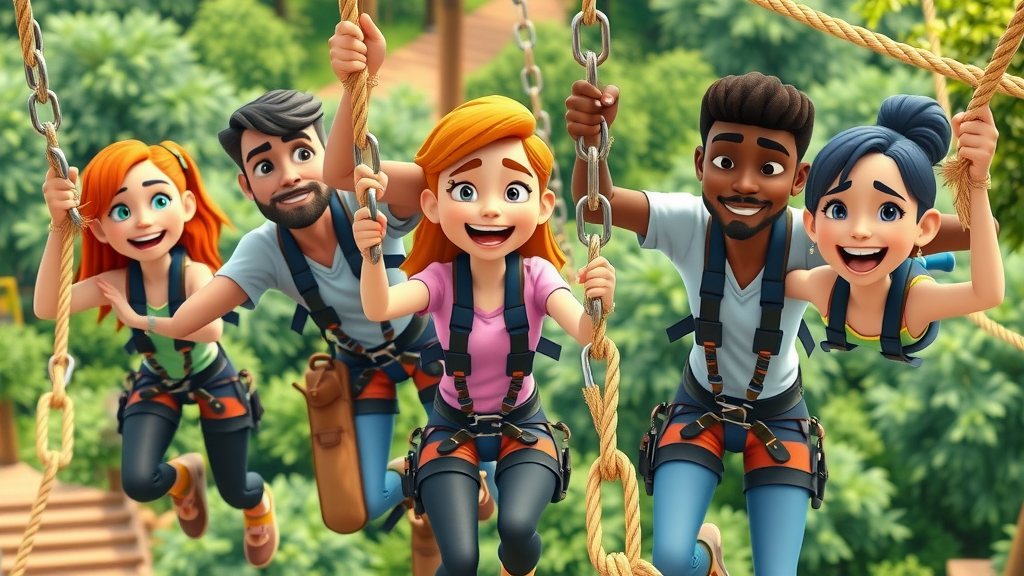
There are countless ways to jumpstart your outdoor personal development journey. Whether you prefer solo adventures or thrive in group settings, there’s an activity tailored to every style and goal. Hiking remains a favorite for building resilience, while adventure races and ropes courses challenge your teamwork and problem-solving skills. Wilderness survival workshops develop self-reliance, and kayaking sharpens your communication and leadership skills.
Mindful activities—such as nature walks, journaling, or observing wildlife—foster self-awareness and stress reduction, making them ideal for those seeking balance and emotional regulation. For deeper transformation, try a multi-day group retreat or eco-stewardship project, where participants collaborate toward meaningful collective goals. These hands-on adventures promote growth, empathy, and a renewed sense of connection with the natural world.
The beauty of outdoor personal development is its flexibility. You can craft your journey around your interests, comfort level, and growth objectives—whether aiming for physical fitness, leadership excellence, or simply a stronger sense of self.
How to Choose the Right Activity for Outdoor Personal Development

Selecting the ideal activity for your own development depends on your unique needs, interests, and current level of experience. First, consider your personal goals: Are you hoping to build resilience, improve leadership skills, or break out of your comfort zone? Next, evaluate your current fitness level and willingness to try new experiences. Outdoor activities range from gentle nature walks to demanding adventure races, so there’s something suited to every personality.
Start by researching local programs, clubs, or guided experiences. Listen to your instincts—if a particular activity sparks excitement (or a little nervousness), it’s likely to offer the greatest growth. Don’t be afraid to invite friends or join a group; camaraderie often deepens the learning and helps motivate you through new challenges. The most important part is simply to take the first step and commit to ongoing exploration and progress.
Remember that the best outcomes arise from consistent practice and a willingness to reflect on your growth. Over time, you’ll become attuned to the activities that resonate most, making outdoor personal development a fulfilling, lifelong journey.
Real-World Stories: Outdoor Leaders on Transformational Growth
“Outdoor adventure has taught me lessons I never found in a classroom. Every challenge is an opportunity for personal growth.” – Renowned Outdoor Leader
Real-world success stories speak volumes about the power of outdoor personal development . Outdoor leaders commonly attribute their resilience, confidence, and creativity not to conventional training but to the challenges and triumphs they experienced in nature. For example, young people who participate in outdoor education programs often describe how hiking long distances, leading team activities, or tackling rock climbing walls helped them build skills they never imagined possible.
Adventure guides, educators, and even executives frequently credit their outdoor adventures with teaching them how to make decisions quickly and effectively, foster trust among teams, and solve problems under pressure. These skills, once developed outdoors, become invaluable back in the workplace, at school, or in daily life. The growth is not just physical or technical—participants report stronger self-awareness, improved mental health, and a sense of personal accomplishment that carries forward for years.
In every narrative, the theme is clear: transformative growth happens when individuals step outside their comfort zone and embrace the unpredictable beauty of the natural world.
Expert Strategies for Sustained Outdoor Personal Development
Daily Practices for Long-Term Outdoor Personal Development Success
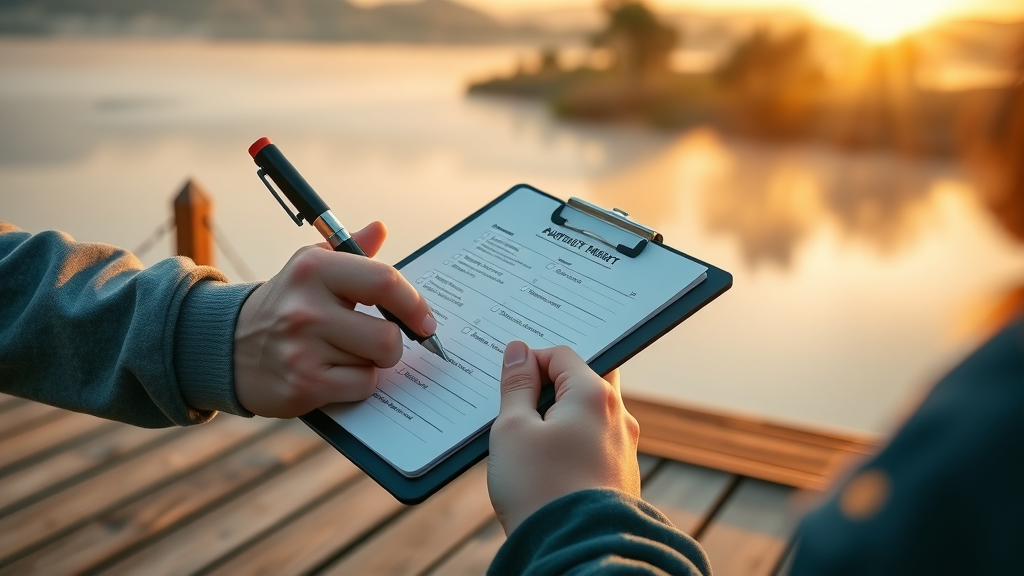
Sustaining progress in outdoor personal development takes more than occasional adventures—it requires intentional daily practice. Consistent habits, such as setting clear goals, tracking progress, and reflecting on each experience, turn outdoor challenges into lasting transformation. Many outdoor leaders recommend keeping a journal to record insights, celebrate achievements, and identify areas for future growth.
Integrating small outdoor activities into your routine—such as taking a brisk walk during lunch, practicing mindfulness outdoors, or joining a weekly group activity—can keep motivation high. Over time, these frequent, intentional efforts build a resilient mindset and create momentum toward larger goals. The most important part is to remain open to new experiences and maintain the curiosity and perseverance that drive meaningful personal growth.
Expert strategies also include seeking out mentorship or guidance from established outdoor leaders, participating in structured programs, and engaging with a community of like-minded individuals. Collaboration and shared accountability can help you stay focused and inspired, ensuring that your path of outdoor personal development is as rewarding as it is transformative.
Answering Your Burning Questions on Outdoor Personal Development
What are the 5 points of personal development?
- Self-awareness
- Goal setting
- Skill building
- Resilience and adaptability
- Growth mindset
- Each facet can be developed through targeted outdoor activities and experiential learning, making outdoor personal development uniquely effective.
The five core points of personal development —self-awareness, goal setting, skill building, resilience and adaptability, and a growth mindset—are all fostered by the challenges and reflective practices found in outdoor personal development activities.
How can the outdoors enhance emotional development?
- Outdoor environments stimulate emotional regulation, reduce stress, and foster reflection, supporting deeper emotional intelligence and faster personal growth.
The outdoors offers a powerful platform for emotional development. Immersion in nature calms the mind, reduces stress, and opens space for reflection. These factors combine to boost emotional intelligence and the ability to manage feelings, creating a foundation for long-term personal growth.
What are examples of personal development activities?
- Examples include wilderness hiking, leadership retreats, teamwork-based orienteering, mindfulness exercises in nature, and participating in eco-stewardship projects.
Practical personal development activities range from adventurous pursuits like hiking, rock climbing, and wilderness survival, to leadership and teamwork events such as ropes courses or group retreats. Mindful practices, eco-projects, and regular outdoor walks also offer valuable growth opportunities.
What are the 4 P's of personal development?
- Purpose, Planning, Persistence, and Progress—each can be empowered through outdoor personal development and adventure experiences.
The "4 P’s"—Purpose, Planning, Persistence, and Progress—are all strengthened through thoughtfully chosen outdoor activities. Each step, from setting intentions to persevering through challenges, teaches lessons that shape both character and success.
Key Learnings: Maximizing Your Outdoor Personal Development Journey
- • Outdoor personal development offers unique pathways for leadership skills, resilience, and personal growth.
- • Outdoor activities and experiential learning drive lasting behavioral change.
- • Consistent practice and reflection are crucial for sustainable progress.
Start Your Path to Outdoor Personal Development Today
- Ready to unlock your true potential? Begin your outdoor personal development journey with a simple activity and commit to continuous improvement. Step outside now and experience the transformation firsthand.
 Add Row
Add Row  Add
Add 

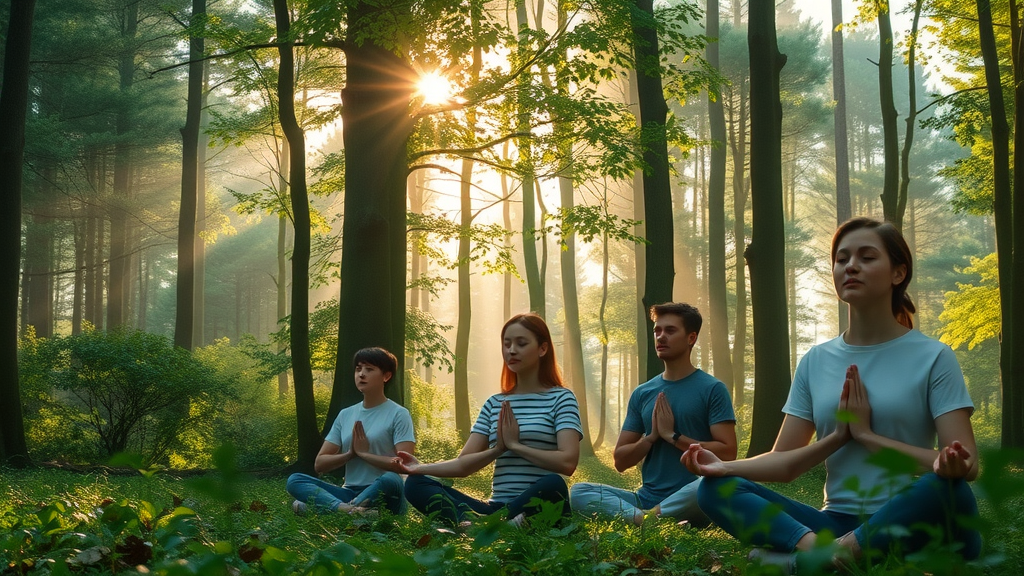

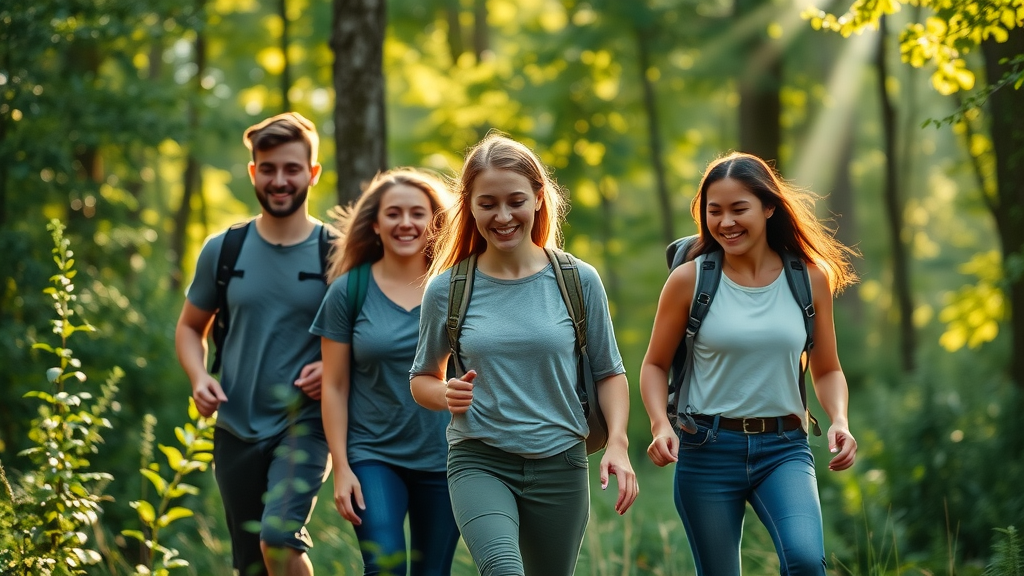
Write A Comment